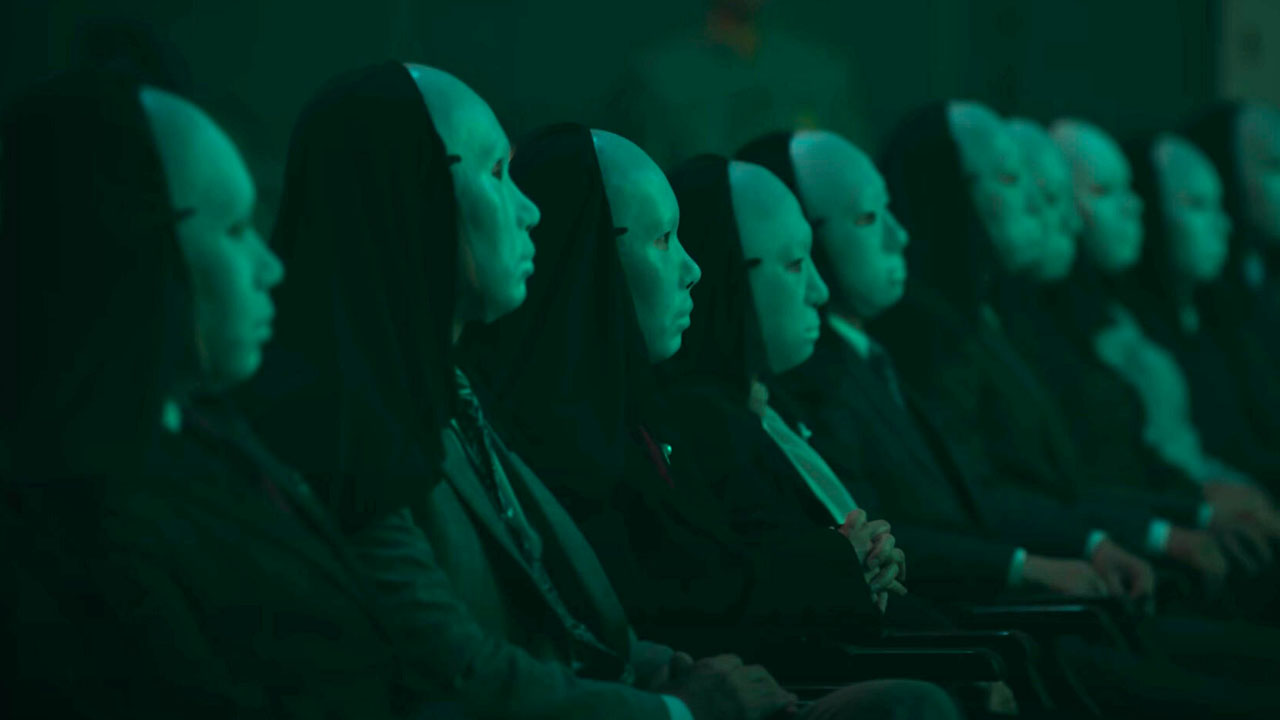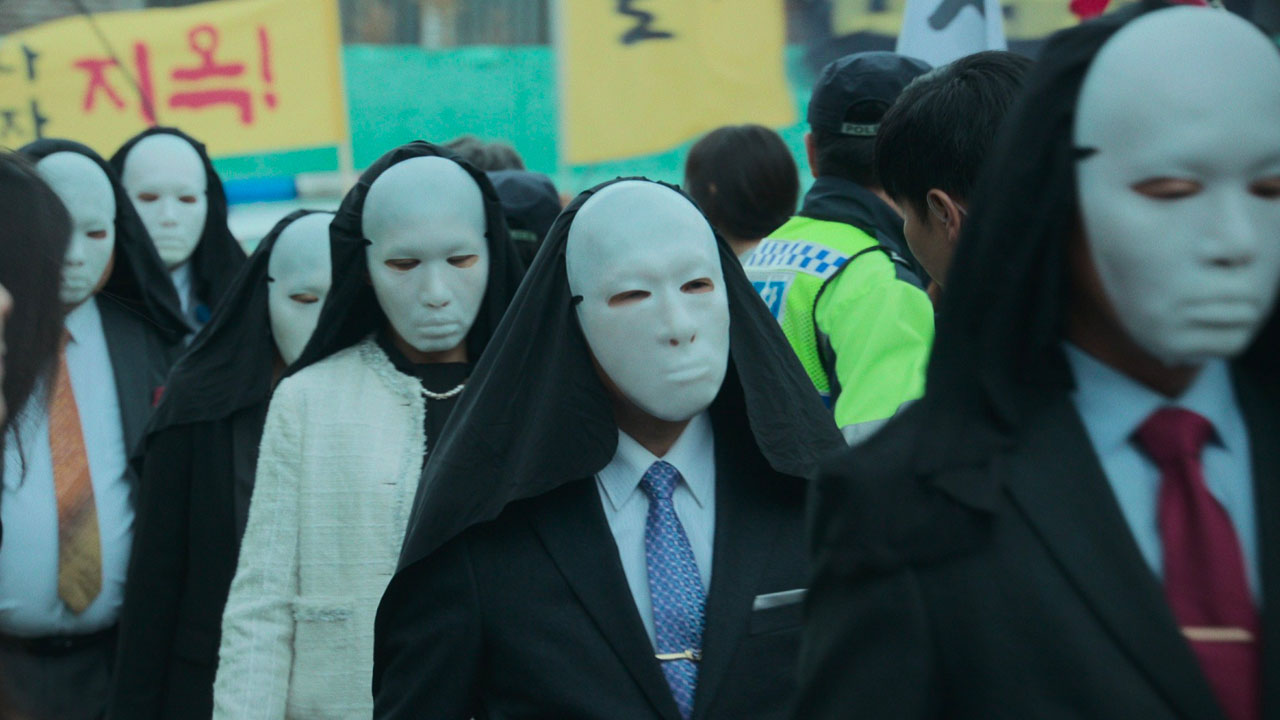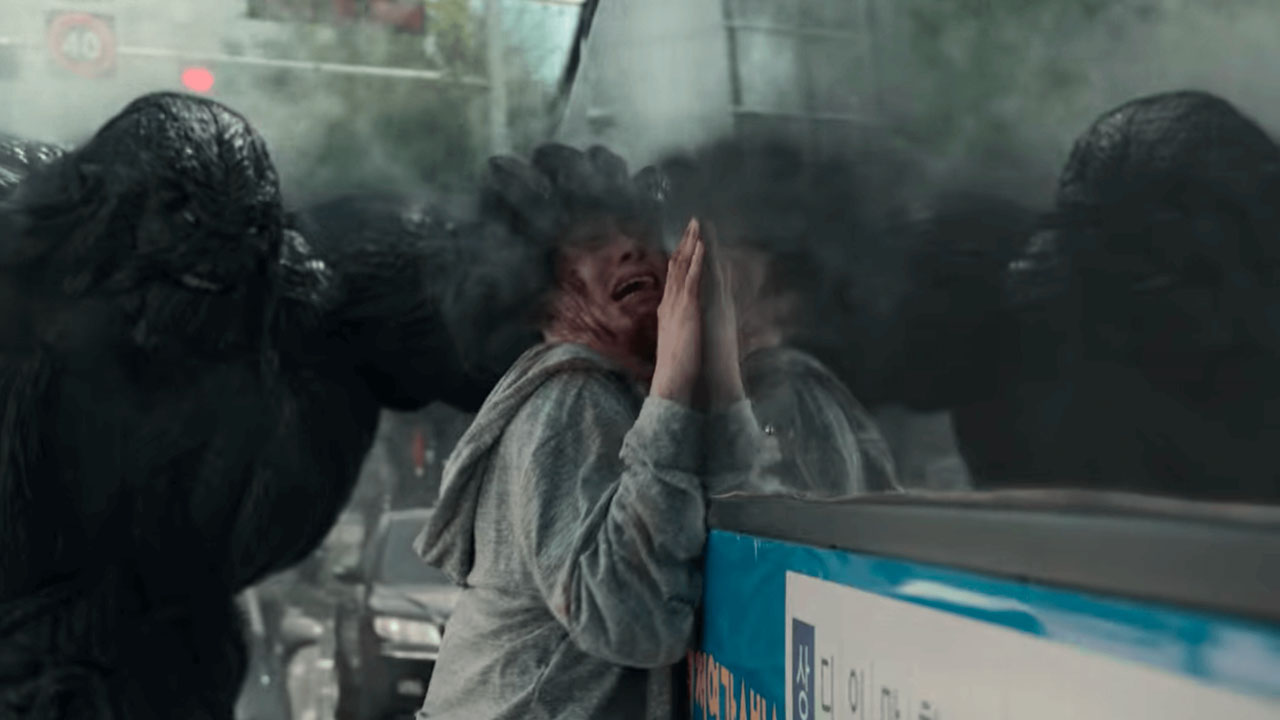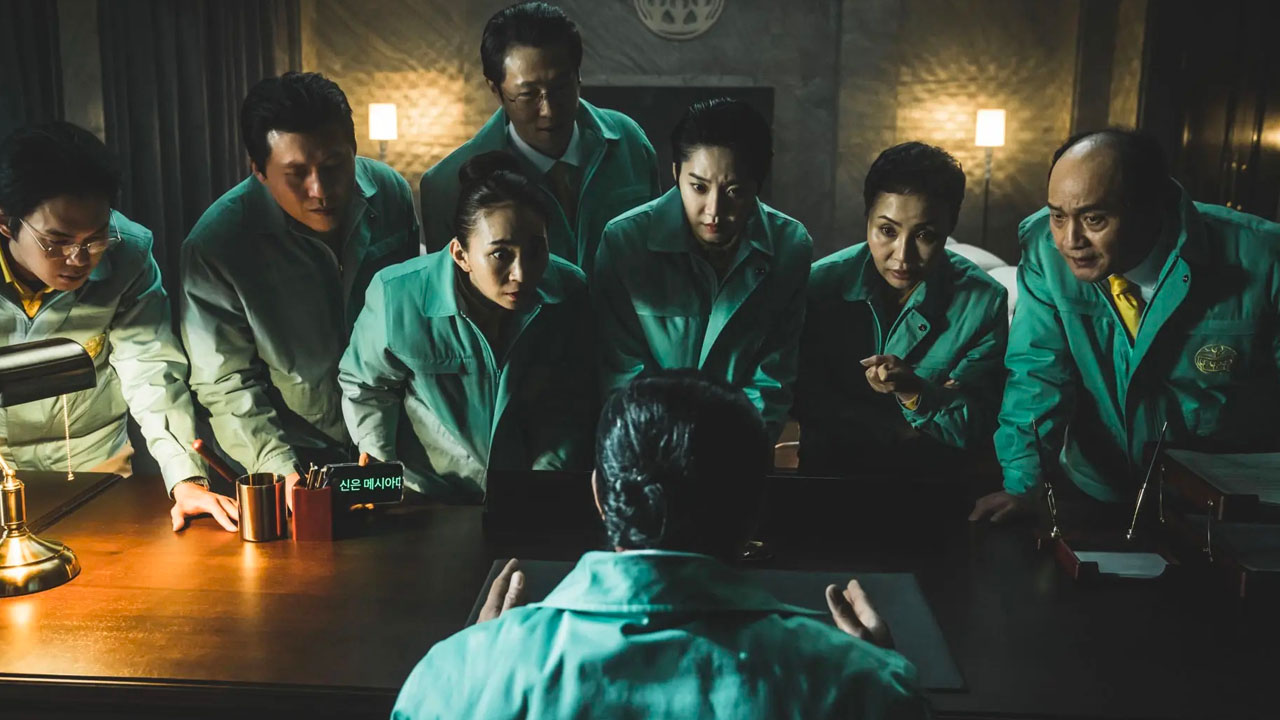Demons, cults and violence in Hellbound make Netflix’s new Korean sensation worth a look

Netflix’s new Korean series sensation comes courtesy of Train to Busan’s Yeon Sang-ho. Focusing on society’s reaction to the emergence of demons is a damned good aspect of Hellbound, writes Daniel Rutledge, even if the show overall is no home run.
What would happen to society if a trio of demons started popping up and very brutally, very publicly killing someone every now and then? What would happen to society if those victims received a warning from a ghost some time beforehand telling them exactly when they’d be murdered, and inevitably one of these decrees was caught on camera as irrefutable proof?
That’s the gist of Hellbound and its focus on society’s reaction rather than on the demons themselves is why it is, at times, damned good. It’s certainly not a home run, and far from the best new series debuted on a streaming platform this year, but it’s an interesting, original show that’s worth a look.
One way it’s different to many similar shows is the non-apocalyptic nature of the supernatural attacks. Because they only target specific individuals, aside from a bit of collateral damage there’s no endangerment to anyone else, much less the entire population. So, generally speaking, the world’s primary systems don’t collapse and normality mostly continues. But of course, there are some changes.
A religious cult springs up that callously capitalises on the demon attacks and quickly becomes hyper-popular by seemingly providing answers to the horrifying questions raised by the monsters. They’re unofficially but quite clearly tied to a fringe group of violent extremists who, like the religious cult, abuse the immediacy and pervasiveness of social media to drastically accelerate their popularity and power. Existing institutions like the police fall in line, seemingly taking an if-you-can’t-beat-them-join-them approach, while the general public just sort of gets on with things as best they can, albeit with yet more horrors to worry about.

Basically, a wicked few become extremely powerful at the expense of the many, with no one doing anything meaningful to try and protect people from the attacks. Which is what would happen. The last few years have shown us just how badly we, as a species, deal with major communal threats. A global pandemic? Devastating climate change? These crises don’t see humans banding together to fight the common peril. They see us squabbling over shit we shouldn’t squabble over, politicising shit we shouldn’t politicise and as far as the worst humans go, callously capitalising on whatever nasty shit they can to increase their riches and power.
Hellbound‘s portrayal of the people of Seoul getting caught up in the madness of the cults and internet mob mentality is very well done and gets pretty bloody scary with how true it rings. If you’ve looked around the real world recently and felt scared at how crazy everyone seems to be getting, well, that’s what this is like, just ramped up a bit. And with actual demons.
Then there’s a viciousness to the violence that starts being dished out by humans that gets quite disturbing, while in the season’s second half there’s one character in particular whose being in jeopardy is genuinely terrifying. I can’t give away what that is, but it really got under my skin.

While the real terror is undoubtedly the humans, the demons themselves are cool, despite being built with fairly crude CGI. They’re these black beasts that emit smoke and resemble Fantastic Four’s the Thing in shape and size. I really like the effective way their attacks are presented, too. How one in particular is built up to in episode two is just a great example of constructing anticipation.
Then when they kill people—holy moly, they don’t do it by halves. They beat the absolute shit out of them for a while, like really knock the hell out of them; then finish it off by using magical fire to roast the victim to a crisp as their soul is taken to Hell. The beatings are sometimes let down by the digital effects, but it’s still all awesomely brutal.
Although shitty humans try and explain what’s going on with the demons for their own gain, the real reason for their attacks smartly remains a mystery. That means we can project onto them whatever other existential crisis we like.
I have nowhere in this article to work this point in organically, so I’ll crowbar it in here: If you’re old enough to remember how exciting it was hearing New Zealand get a mention near the end of Point Break, look out for an equally tiny mention of our little nation in Hellbound. Yay! There’s also a chap who reminds me quite a lot of Brian Tamaki. Boo!

While the social allegory is pretty great and there is a chilling, realistic portrayal of society going mad, some of the storytelling in this show is pretty clunky and some elements are just plain annoying. One of the worst is a character potentially modelled on the QAnon Shaman who broadcasts to his extremists on something called ‘TeenTok TV’, which is a bit more like Twitch than TikTok, complete with live comments and pop-up ads. But he’s like an over-the-top caricature of a vlogger and hoo boy every time he’s onscreen it’s like fingernails on a chalkboard.
Then, in the final episode, one of the villains literally explains his evil plan to one of the heroes, thus giving them time to save the day. Come on now. This isn’t a cartoon or some old James Bond movie.

And unfortunately, Hellbound ends things on a to-be-continued note that introduces an entirely new supernatural element. I get it, they want you begging for a second season, but the thing they introduce kind of throws the show’s lore a bit too much, at least without further explanation right away. Other things aren’t tied up, either. I’m quite shocked at a couple of characters getting ditched halfway through and was expecting them to pop back up right up until the finale’s end credits rolled. Again, they’ll probably be back in season two; but that means when viewed as a standalone package, season one is unsatisfying.
Still, I enjoyed this show overall. And I know it’s totally normal now, but it’s still a novel luxury for me to get super violent Korean TV shows magically on our TV screens in high quality, legally, cheaply and at the same time as everyone else in the world. Back in my day, this sort of thing could only be watched at film festivals or on import DVDs a year or two after they first released. It’s good to take advantage of this lovely modern convenience. At least until an existential crisis threatens humanity and we all join brainwashing cults, or become enslaved to the tech billionaires, or just kill each other.


















